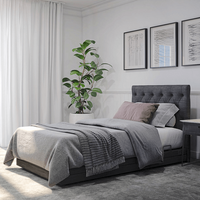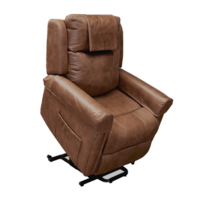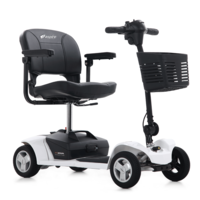Your Guide to NDIS Assistive Technology
Assistive Technology is an essential part of the NDIS that encompasses a range of equipment and aids. These supports are designed to help participants in the scheme reach their goals and live a normal life. So, it’s crucial for participants to understand what Assistive Technologies are available through the NDIS and how they can obtain funding for them.
The NDIS
The National Disability Insurance Scheme (NDIS) is a new method for supporting Australians with permanent disabilities. The scheme, which the Australian government began rolling out in June 2016, is designed to empower people with permanent disabilities by tailoring their support and treatment to help meet their personal goals.
The National Disability Insurance Agency (NDIA) is the independent statutory agency in charge of implementing the NDIS. They predict the rollout of the scheme to be completed by 2019.
As part of the scheme, the NDIS provides funds for services and aids outlined in participants’ care plans. These services and aids must help participants reach their goals and can include:
-
Support services
-
Assistive technology and mobility aids
-
Therapy and training
What is Assistive Technology?
Assistive Technology (AT) refers to any device or system that allows participants to perform tasks they would otherwise be unable to do, or that increases the ease and safety of performing such tasks. As such, it typically relates to aids or equipment for mobility and activities.
To be eligible for funding for AT, it must be included as a specific type of support in your plan. It must also be related to your disability and help you achieve the goals outlined in your plan.
When considering particular assistive technologies, the NDIA may seek expert assessment to be provided. A written report detailing the clinical reasoning and justification for the recommended AT is generally required before funding approval for complex, high risk or specialised aids.
Types of Assistive Technology
AT covers a broad range of supports and aids for those with disabilities. The highest percentage of Assistive Technology spend is on personal mobility equipment, such as power and manual wheelchairs along with four-wheel walkers. However, there are many other categories including:
-
Personal care products
-
Custom prosthetics
-
Home modifications
-
Vehicle modifications
-
Communication equipment
-
Vision equipment
-
Recreation equipment
-
Hearing equipment
-
Household equipment
As well as being sorted into categories, Assistive Technologies are also filtered by complexity levels.
Assistive Technology Complexity Levels
Level 1 (Basic)
Level 1 includes low-cost and low-risk ATs that Participants generally identify and source themselves, such as:
-
Daily living solutions
-
small devices to assist with dressing and undressing, eating and drinking
-
-
Mobility
-
Continence
Level 2 (Standard)
Level 2 usually consists of “off the shelf” Assistive Technology items. These items can often be tested or trialled before purchase and include aids such as:
-
Bathing & toileting devices
-
Home adaptations (external or internal)
-
Portable ramps for a single step ramp
-
Single platform step modifications - minor adaptations
-
Threshold ramps 35mm rise or less
-
Personal alarms
-
Basic seating
-
Standard chair adjustable height
-
Bed or chair raises 40mm or 100mm height
-
-
Basic transfer equipment
-
Car transfer pad
-
Handybar car handle
Level 3 (Specialised)
Level 3 features Assistive Technologies similar to those in Level 2. However, Level 3 items often require modification to suit the participant's needs. This level includes:
-
Bath lifts
Level 4 (Complex)
Level 4 features both custom-made and “off the shelf” supports that are uniquely configured for the participant, such as:
-
High-level pressure cushion and pressure care sleep systems
Unlike Level 1 items, which can be identified and sourced by the participant, Levels 2-4 require an appropriate assessment form. This form must be completed by or with the oversight of an AT Assessor. An AT Assessor can be an AT Mentor who is certificate trained in assisting in AT assessment, an allied health practitioner, a continence nurse, a registered dietician, a psychologist or a rehabilitation engineer.
Assistive Technology and the NDIS
Registered NDIS providers can not only supply you with the Assistive Technologies you require, but they can also help inform you about the types of supports available and how to incorporate them into your plan.
Mobility HQ is a registered NDIS provider. Our expert team is highly knowledgeable about Assistive Technologies and can help you find the right aids for your needs. We also allow you to trial a range of products either in our showroom or at home and provide advice and fittings for home modifications.
Assistive Technologies can help you reach your goals as a participant in the NDIS. To speak with an equipment specialist regarding your needs, call our friendly team on 1300 017 592.
For more information, read our Quick Guide to Getting Started with the NDIS

























.png)


